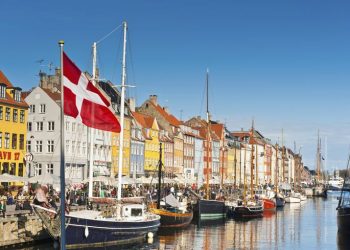Jakarta, Indonesia Sentinel — As Ramadan approaches, Muslims around the world, including in Indonesia, eagerly anticipate the holy month. In the days leading up to Ramadan, Indonesian Muslims engage in various customs and traditions that have been passed down for generations.
Ahead of Ramadan, Indonesian Muslims have traditions from visiting graves and reconnecting with family to participating in unique local rituals.
One of the most widely observed traditions is munggahan, a communal gathering that symbolizes togetherness before the start of Ramadan.
While the customs vary across regions, each tradition reflects Indonesia’s rich cultural diversity. Citing from CNN Indonesia, here’s some unique traditions ahead of Ramadan across Indonesia
Cucurak (West Java)
In West Java, the Cucurak tradition brings families together for a communal meal, often served on banana leaves with everyone sitting on the floor. Rooted in Sundanese philosophy, Cucurak is more than just a feast, it is an expression of gratitude and an opportunity to strengthen familial bonds ahead of the holy month.
Nyorog (Jakarta)
Among the Betawi people of Jakarta, the Nyorog tradition remains a cherished practice. Younger family members deliver food packages to their elders as a sign of respect and to reinforce family ties. This centuries-old tradition underscores the importance of honoring one’s elders while fostering a spirit of generosity.
Padusan (Yogyakarta)
In Yogyakarta, Javanese Muslims perform Padusan, a ritual bathing practice that symbolizes spiritual and physical purification. The term “Padusan” comes from the Javanese word “padus,” meaning “to bathe.” Participants immerse themselves in natural water sources, such as rivers or springs, as a way to cleanse the soul and prepare for Ramadan.
Malamang (West Sumatra)
The Minangkabau people of West Sumatra uphold the tradition of Malamang, where families and communities come together to prepare lemang, a traditional dish made of glutinous rice cooked in bamboo with coconut milk. The communal cooking process fosters a sense of unity and togetherness, reinforcing the spirit of Ramadan.
Meugang (Aceh)
In Aceh, the Meugang tradition dates back to the 14th century during the Aceh Sultanate. Families prepare and share large portions of meat such as beef, buffalo, or goat on the eve of Ramadan. The meals are shared with relatives and even orphans, embodying the values of compassion and communal solidarity.
Read Also:
Megibung (Bali)
Among Bali’s Muslim communities, the tradition of Megibung brings people together for a communal meal served in a gibungan (a shared rice dish) and accompanied by side dishes presented in karangan containers. Originating from Balinese culture, Megibung emphasizes unity and social harmony, reinforcing the bonds of brotherhood as Ramadan begins.
These deeply rooted traditions showcase Indonesia’s diverse cultural heritage and the shared values of gratitude, togetherness, and spiritual preparation as millions of Muslims embark on their Ramadan journey.
(Raidi/Agung)

























